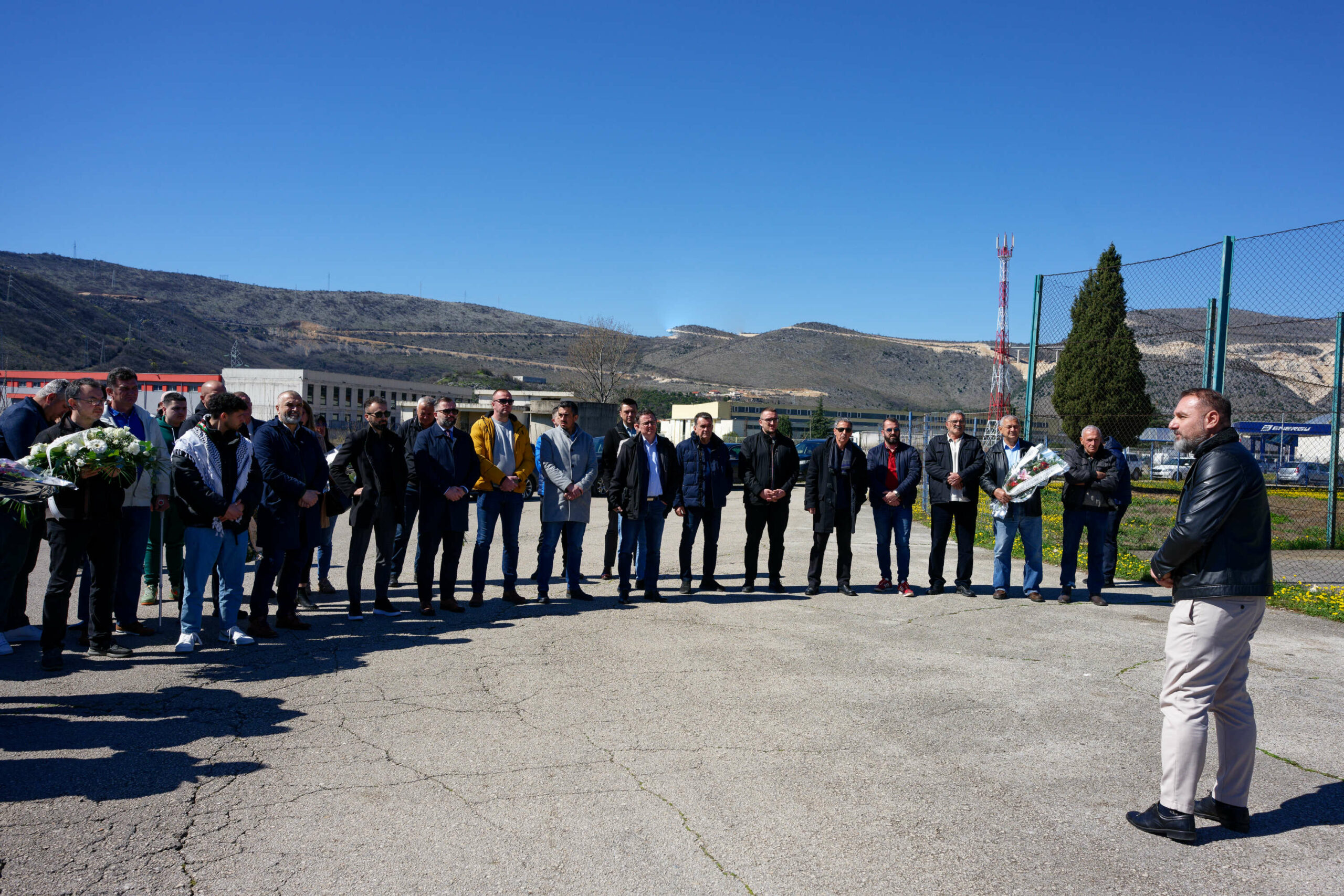Members of the team from the Centre for Nonviolent Action Sarajevo-Belgrade, together with a smaller group of war veterans from the region, attended the commemoration to mark 31 years since the closing of the Heliodrom camp near Mostar.
During the 1992-1995 war, the former JNA barracks in Rodoč, south of Mostar, became an HVO prison for the city of Mostar and the surrounding area. During the conflict between ARBiH and HVO, the facility was used as a detention site for Bosniak civilians and soldiers from the wider Mostar area. The prisoners were subjected to harsh conditions, with restricted access to food and water, and to forced labour. They were also subjected to daily abuse and beatings. At least 77 prisoners died as a result of being detained at this facility.
The Mostar Prison Camp Survivors Association is fighting for access by prison camp survivors to Heliodrom and other former detention sites in the Mostar area. Unfortunately, access was once again denied, the former camp building is not marked as a detention site, while at the same time there are plans for a museum dedicated to HVO. According to survivors’ testimony, some 10,000 people had passed through this camp, of which 6,000 were from Mostar.
Emir Hajdarović, president of the Mostar Prison Camp Survivors Association, says that the closed gates are a vivid illustration of the attitude of city authorities towards prison camp survivors.
This closed gate illustrates the kind of people ruling over this space and the University of Mostar. These are the same people who originated everything going on in society today and so it is no surprise. These people do not deserve to hold the offices they hold, especially not the office of the University rector, Hajdarović said.
As a prison camp survivor, Hajdarović called on students who pass through the campus gates of the University of Mostar every day to liberate themselves from people who poison this space with their political and other attitudes.
These are people standing in the way of the young generations and their remaining in a normal and European BiH. Everyone here wishes for such a country and I hope that the idea of a normal and prosperous BiH will take root despite everything going on today, Hajdarović said at the end.
In 2024, the Centre for Nonviolent Action organised a joint visit with prison camp survivors to former detention sites in Herzegovina. Together, the prison camp survivors visited the Čelebići barracks near Konjic, Heliodrom in Rodoč near Mostar, the former Primary School in Zijemlje in Istočni Mostar and the Museum of the Battle for the Wounded at Neretva in Jablanica. Even though this was a joint initiative with broad support from prison camp survivors, officials of the University of Mostar and the Museum of the Battle for the Wounded at Neretva did not allow them to access and visit these former detention sites.
Heliodrom is one of the sites in BiH and the region that have been recognised as unmarked sites of detention where former detainees are continuously being denied access and their suffering is being denied. Tamara Zrnović from the Centre for Nonviolent Action says that this year’s attendance at the commemoration to mark the closing of the Heliodrom detention facility is an example of continuous support to victims fighting for their right to memory.
We know that we cannot make up for the lives lost and the suffering endured, but we want to do everything we can to build relations of mutual respect and trust that will stand as a dam against the threat of hatred among people from different communities serving as grounds for new injustices and violence in the future. Today, we have come to offer our support to people who seek recognition of their suffering and for the University of Mostar to give them access so they can lay flowers. Their readiness to support others encountering similar obstructions is not just a show of good will, but an indication that shared memory and solidarity are possible, Zrnović said.

